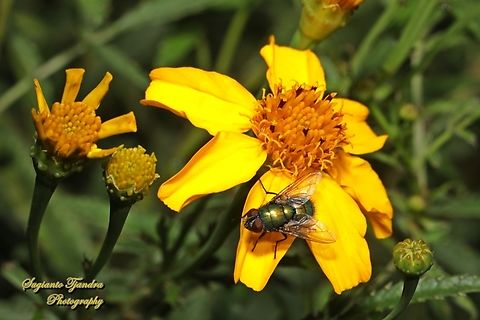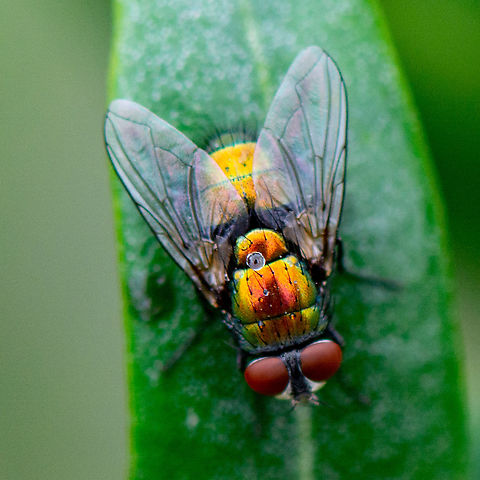
Appearance
"Lucilia cuprina" is a species of blow fly characterized by a metallic outer appearance and reddish eyes. They usually have a shiny green or greenish/blue abdomen with bronze/coppery reflections.Because of this, "Lucilia" species are known as the bronze bottle flies. Their body shape is round to oval and their length varies from 4.5–10 millimeters. They have two pairs of wings, the first pair being membranous wings and the second pair being reduced wings known as halteres which are used for flight stabilization.
Adults are easy to distinguish due to bristles on the meron, in addition to the arista, the prominent hair on the terminal antennal segment being plumose, or feathery. "L. cuprina" are most easily identified by their strong dorsal setae and their black thoracic spiracle.

Naming
"Lucilia cuprina" is one of many species of the family Calliphoridae. Though many of its species have similar characteristics, "L. cuprina’s" closest relative is its sister species, "Lucilia sericata". These flies are very similar in appearance and morphological characteristics, which can sometimes cause errors when trying to differentiate between them.They each exhibit specific genetic variations which can be distinguished by using random amplified polymorphic DNA and/or mitochondrial DNA sequences, and are known to cause myiasis in sheep. They are both one of the first blow flies to arrive at a corpse and each have smooth larva. Unlike "L. cuprina", "L. sericata" does not usually infest live sheep. "L." "cuprina" is a worldwide sheep pest though it is usually found in dry climates. "L. sericata" has a coastal distribution.
References:
Some text fragments are auto parsed from Wikipedia.